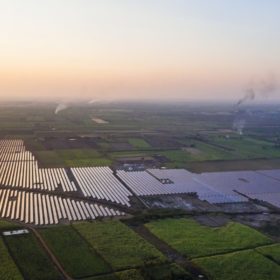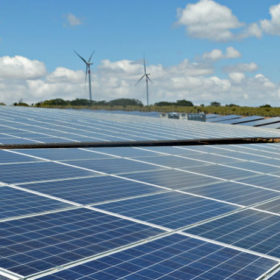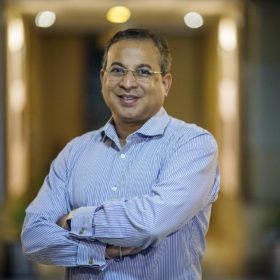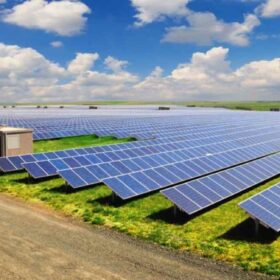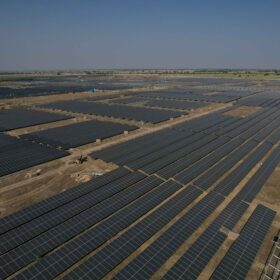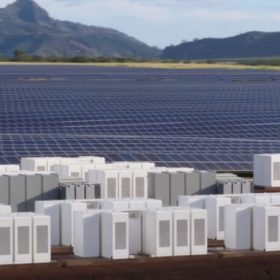ReNew Power signs PPA for 400 MW round-the-clock supply
The Indian developer will build a 1,300 MW hybrid renewable energy capacity (900 MW wind plus 400 MW solar) supplemented with storage to ensure a round-the-clock supply. The project cost is estimated at approximately US$ 1.2 billion.
Amp Energy India raises US$ 100 million from Danish investor
Copenhagen Infrastructure Partners and Amp Energy have signed a US$200 million investment pact with each partner committing to $100 million. The investment will allow Amp Energy to add 1.7 GWp of utility-scale and commercial and industrial renewable energy projects.
Sterling and Wilson Solar expands into hybrid energy plant, storage EPC
The Indian multinational, which has 11.4 GWp of solar EPC portfolio and 8.1 GWp operations and maintenance, aims to use its project management skills and strong stakeholder relationships to become a global leader in the future energy market.
ABC Renewable signs 380 MW solar-wind PPA with SECI
With this power purchase agreement, ABC Renewable, a joint venture between Canadian asset manager Brookfield and clean energy firm Axis Energy Ventures India, has enhanced its RE portfolio to 1,080 MW comprising solar and solar-wind hybrid projects.
Tata Power to exit coal by 2050
The energy company says it will use hybrid-technology projects, round-the-clock renewables, battery storage, floating solar and green hydrogen as it attempts to wind down the 69% of its energy generation fleet based on thermal power.
Maharashtra Discom tenders for purchase of 500 MW of wind-solar power
The selected bidders shall set up wind-solar hybrid power projects to supply the generated power under a 25-year PPA. Bidding closes on June 8.
US-based EverGreen Power to assess feasibility of 300MW wind-solar-storage project in Gujarat
The U.S. Trade and Development Agency (USTDA) is funding the 300MW wind-solar-storage project as part of its mission to promote sustainable infrastructure projects in partner countries like India.
NTPC tenders 600 MW of wind-solar hybrid projects across India
EPC service providers have until May 31 to bid for setting up the ISTS-connected solar capacity on land identified and arranged by them anywhere in India. PV cells and modules of any origin are allowed for the projects.
SECI tenders 1.2 GW of wind-solar hybrid projects
Developers can compete for a minimum of 50 MW, up to all 1200 MW tendered capacity. The projects—to be developed on a build-own-operate basis—can be set up anywhere in India at the locations chosen by the developer. Bidding closes on May 28.
Wind-solar-storage hybrid offers cheaper electricity than new coal
A new report establishes the feasibility of wind-solar-storage hybrid projects over new coal plants in the Indian States with high renewable energy potential. Tamil Nadu was chosen for the techno-commercial assessment.

